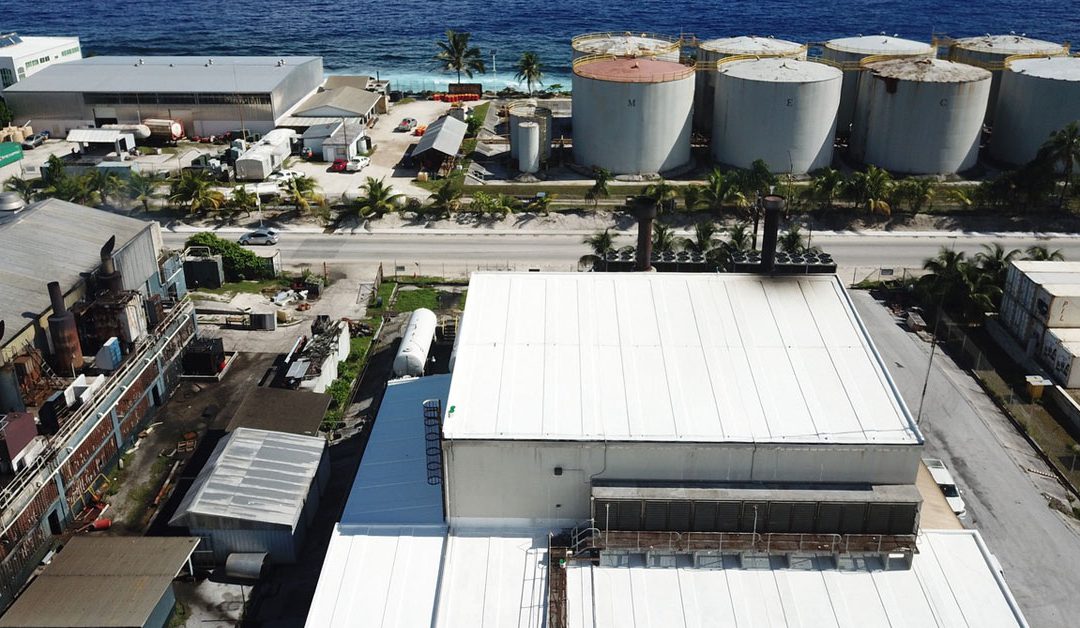First, and foremost, the Auditor General does not use the word “unlawful” in their audit. This is pure sensationalist rhetoric of the Journal and Marshalls Energy Company (MEC) takes exception to the use of this word to describe the procurement and acquisition of the MERAM.
MEC disagrees with parts of the findings and conclusions of the RMI Auditor General’s latest report to Nitijela regarding the purchase of its MERAM vessel. The report contains factual errors, misinterpretations and omissions that undermine its credibility and validity.
The Journal claims that MEC violated the law with its purchase of the vessel which amounted to $2,450,000. This is false and misleading. MEC followed all necessary procurement procedures and regulations of the RMI to acquire the MERAM vessel, which is essential for its operations and delivery of fuel to the other power plants on Ebeye, Jaluit and Wotje.
As part of its due diligence, MEC solicited seven price quotes from an adequate number of reputable vendors and conducted extensive research before selecting the vessel. The evaluation of prices was conducted and documented by a committee of MEC senior management and members of the Board Technical Committee, who selected the best vessel option based on availability, price, quality and suitability for MEC’s needs. The purchase agreement was reviewed and approved by MEC’s legal counsel and Board of Directors.
In regard to the $84,390 services, this contractor was chosen as it was close to the shipyard where the vessel was located, the contractor was readily available, and, importantly under the Procurement Code, there was satisfactory past experience with the company’s services. We believe that the services provided by the contractor were necessary for the acquisition of the vessel. The contract for these services was authorized by the Board and was supported by proper documentation and invoices.
Second, the report implies that MEC lacked written documentation to show the history of the purchase, including why the vendor was chosen. This is also false and misleading. MEC has maintained adequate records of the purchase process, including email solicitations, price quotations, evaluation, selection, agreement, payment, delivery and Board approval. These records are available for inspection and audit by any authorized party. MEC has also provided copies of these records to the auditors. Furthermore, MEC has explained in detail the rationale for choosing the vendor and the contractor in its response to the audit finding.
Finally, MEC takes procurement policies and procedures very seriously and is committed to formally establishing its own procurement policy tailored to the specialized needs of the industry. However, MEC does not accept that its purchase of the MERAM vessel was unlawful or improper. MEC requests that the Journal retract this unsupported allegation, and that the Auditor General modify or revise its report to reflect the true facts and circumstances of the purchase.
In conclusion, the acquisition of the MERAM vessel by MEC was a strategic and prudent decision that serves the best interests of both the company and its customers. Some of the reasons that support this assertion are:
- Gain control and flexibility: Owning a vessel gives MEC greater control over the transportation of its fuel to the other power plants in the RMI. This also allows for more flexibility in scheduling and routing to tailor MEC’s specific needs, which ensures the timeliness of fuel deliveries and reduces MEC’s dependence on third-party shipping companies.
- Secure long-term returns: A vessel is a long-term investment that can provide returns for many years. MEC’s vision is to grow and expand its commercial operations. MERAM will play a crucial role in MEC’s long-term strategy to improve the company’s economic viability and expand its presence to neighboring countries in the region.
- Boost income streams: MERAM provides a regular income stream for MEC and opens many opportunities for expanding MEC’s petroleum business. The vessel will diversify the company’s revenue streams, resulting in additional income.
- Make fuel accessible and affordable: With MERAM, MEC can supply diesel, gasoline, and other petroleum products to neighboring islands at affordable prices. The reduced fuel prices should help improve these islands’ economic performance and the viability of their local businesses, more importantly their local fishing industry.
- Cut costs and increase profits: Before MERAM, MEC used third-party shipping operators to transport diesel to the power plants in Ebeye, Jaluit and Wotje. This third-party delivery service has cost MEC more than $2.6 million in the last three years. Therefore, the decision to acquire MERAM was a no-brainer based on this reason alone.
- Eliminate fuel losses and improve efficiency: MEC has experienced fuel losses and shortages with third-party ship operators, resulting in an estimated loss of approximately $460,000 over the last three years. By owning its own vessel, MEC can ensure that its receiving power plants get 100% of the fuel they need, improving efficiency and eliminating unnecessary costs and losses.
MEC reaffirms its mandate to continue making investments in its operations and services where necessary to provide reliable, affordable, and efficient energy solutions to enhance the quality of life of its customers, the communities in the neighboring islands, and other stakeholders in the RMI.
